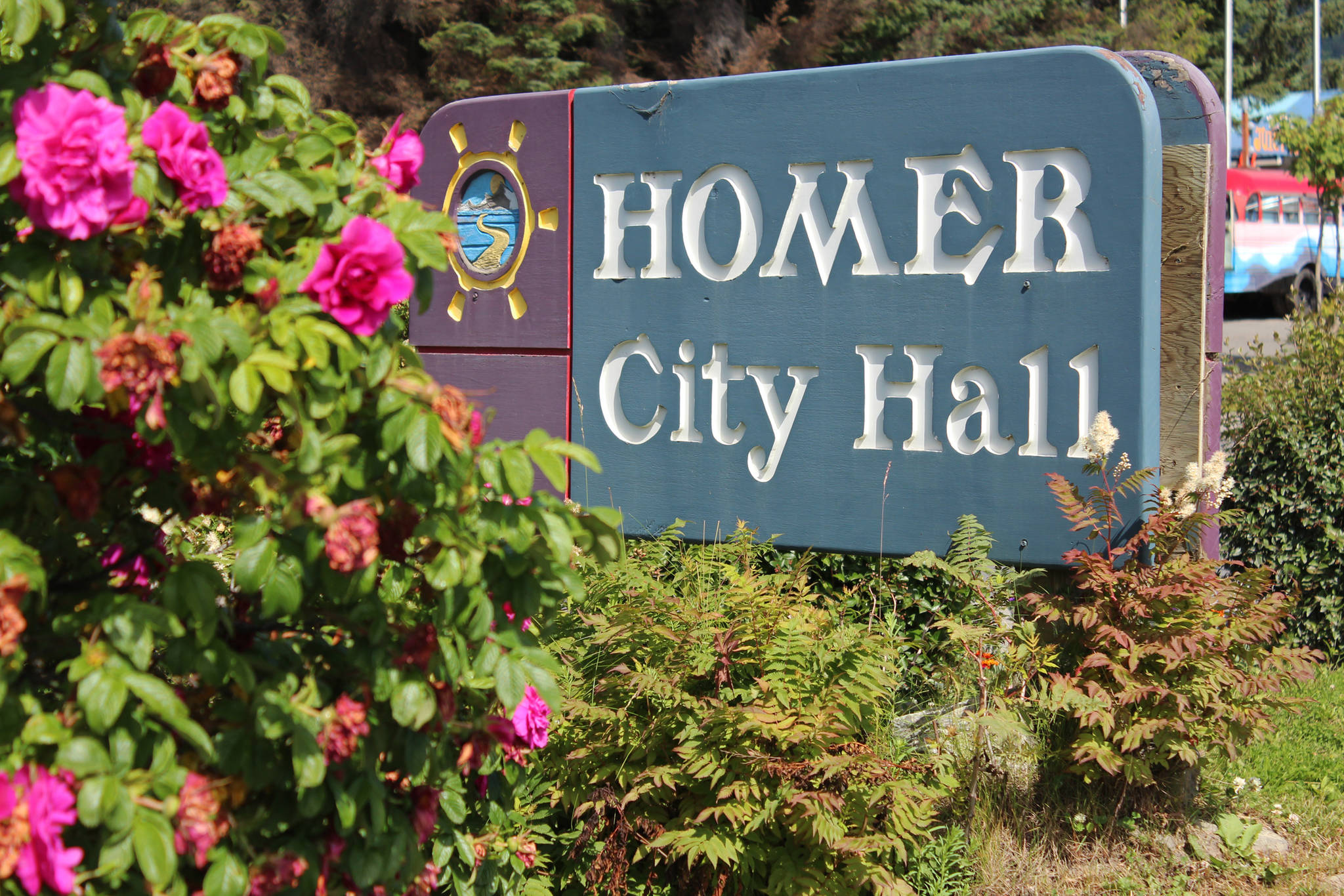The Homer City Council delved into issues of land conservation at its most recent meeting
The City of Homer will pay off water and sewer assessment fees on a parcel of land to help a conservation group preserve the area for moose habitat.
At its Monday meeting, the city council passed a resolution that expresses its intent to pay off water and sewer assessments totaling about $78,500 on a parcel of land of Kachemak Drive after it is purchased by Kachemak Moose Habitat Inc. The organization plans to purchase the 21-acre parcel that encompasses wetlands and a large portion of Lampert Lake, and retain it for moose habitat conservation purposes.
According to a letter from Kachemak Moose Habitat Inc. board member Lynn Whitmore to Mayor Ken Castner, the city has waived assessment fees for the organization in the past when it has purchased other city parcels, “as long as the impacted property remained in habitat conservation status.”
According to a memo from City Manager Rob Dumouchel and Deputy City Planner Julie Engebretsen, the approximately $78,500 in water and sewer assessments on this particular parcel is a debt owed to the Homer Accelerated Water Sewer Program (HAWSP) fund.
“It is inappropriate to waive the assessments,” their memo states.
Instead, staff suggested the council pay off those assessments using money from the city’s Land Acquisition Fund. That fund currently has a balance of $170,000, according to city council documents, so the draw to pay the assessments would leave about $91,000 remaining in the Land Acquisition Fund.
Lampert Lake is also popular with bird watchers and ice skaters. The resolution text notes that Kachemak Moose Habitat Inc. allows continued public access to the land it buys.
“The city is not purchasing the property but the public would be gaining access to recreational opportunities such as ice skating and bird watching in perpetuity, without the costs associated with managing a public park,” the resolution states.
The resolution stating the council’s intent to pay off the parcel’s water and sewer assessments was postponed from the council’s previous meeting in December. The version passed Monday night was a substitute with slightly altered language.
City staff will also need to bring an actual ordinance back before the council at its next meeting allocating the needed money from the Land Acquisition Fund to pay the assessments.
Council member Heath Smith supported the resolution, but said he thinks the council needs to have a discussion going forward about long-term planning in relation to how the city takes action like paying off parcel assessments.
“I think that we really need to kind of talk about that because to me, regardless of who owns the land and what it’s being used for, when you’re talking about this percentage of a project that then goes back into the taxpayer obligation part, I have a little bit of a problem with that,” he said.
He asked how much land and money the city can allocate to promoting moose habitat within its boundaries.
“We can’t prevent anybody from buying property, so that is what it is,” Smith said. “But what they expect from the city in return — because it’s not just the $79,000, it’s the loss of property tax revenue in perpetuity for these kinds of properties.”
Council member Donna Aderhold said she’d be interested in organizing a council conversation on the issue.
During the meeting, Whitmore gave public testimony on the resolution, saying that the southern Kenai Peninsula is seeing high moose population numbers.
“It’s a very, very critical wetlands complex that we’ve been targeting,” he said of the parcel.
The wetlands around Lampert Lake are used by moose for foraging all summer long, Whitmore said.
City resident Rika Mouw also testified in support of the resolution.
“Land conservation in a time of increasing developmental pressures becomes more and more critical to Homer’s future and the quality of life far after you and I are gone,” she said. “Land conservation is a way of shaping what our community will look and feel like for our children and generations beyond ours.”
Reach Megan Pacer at mpacer@homernews.com.


